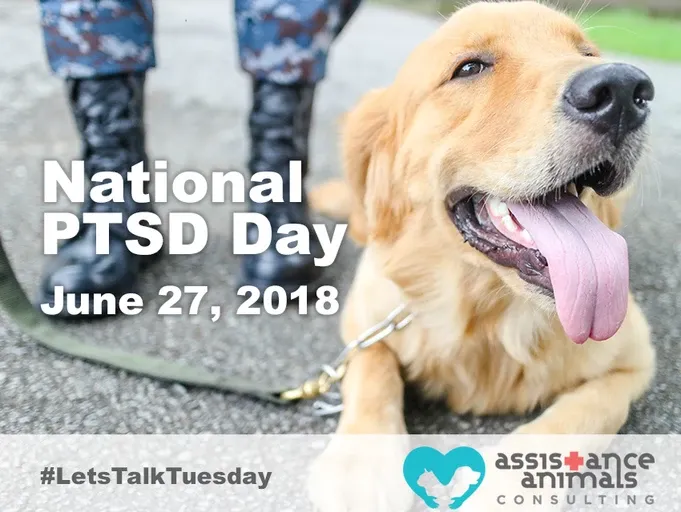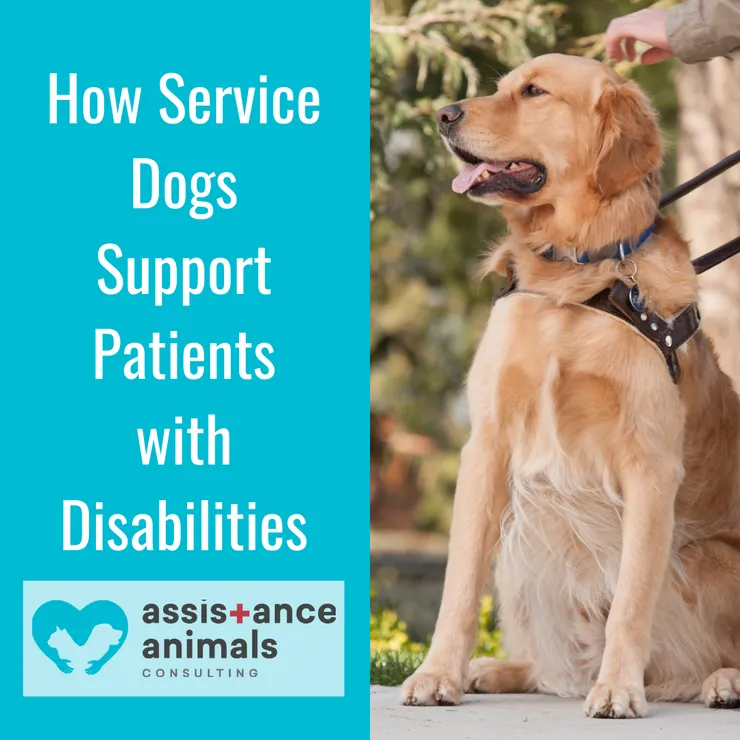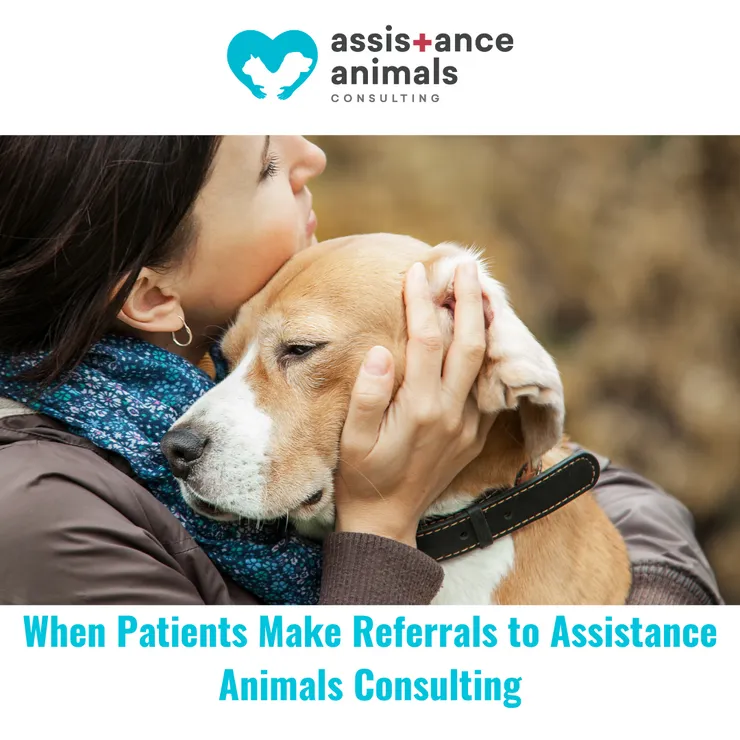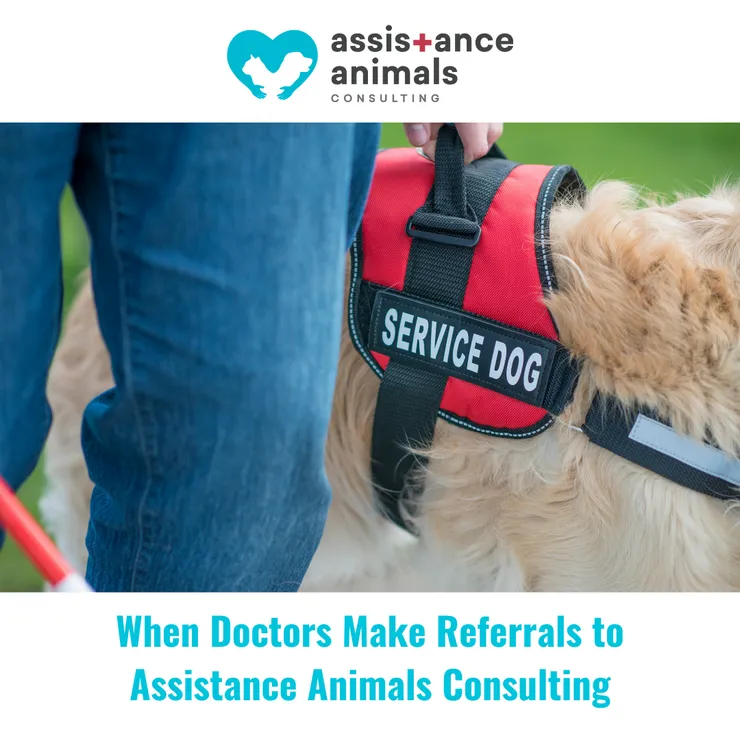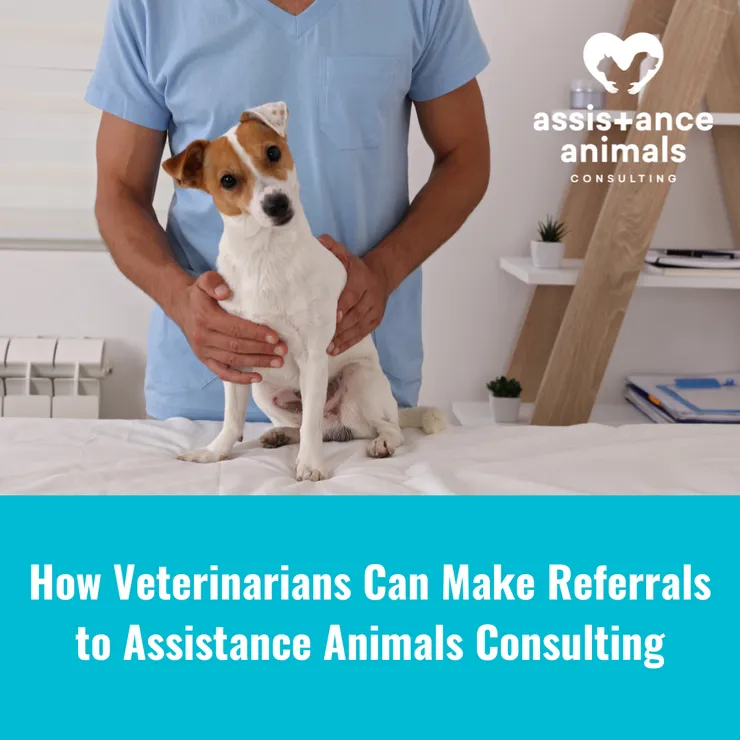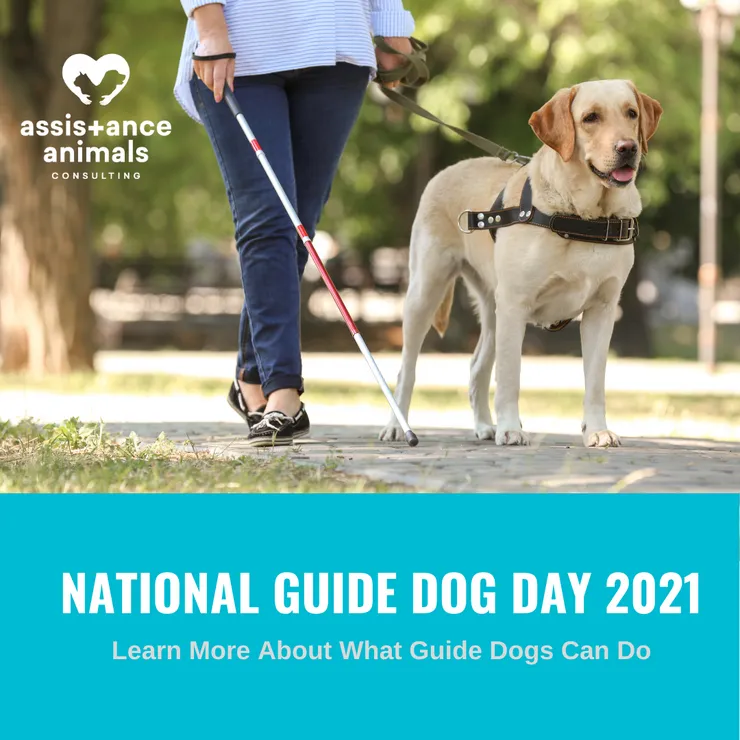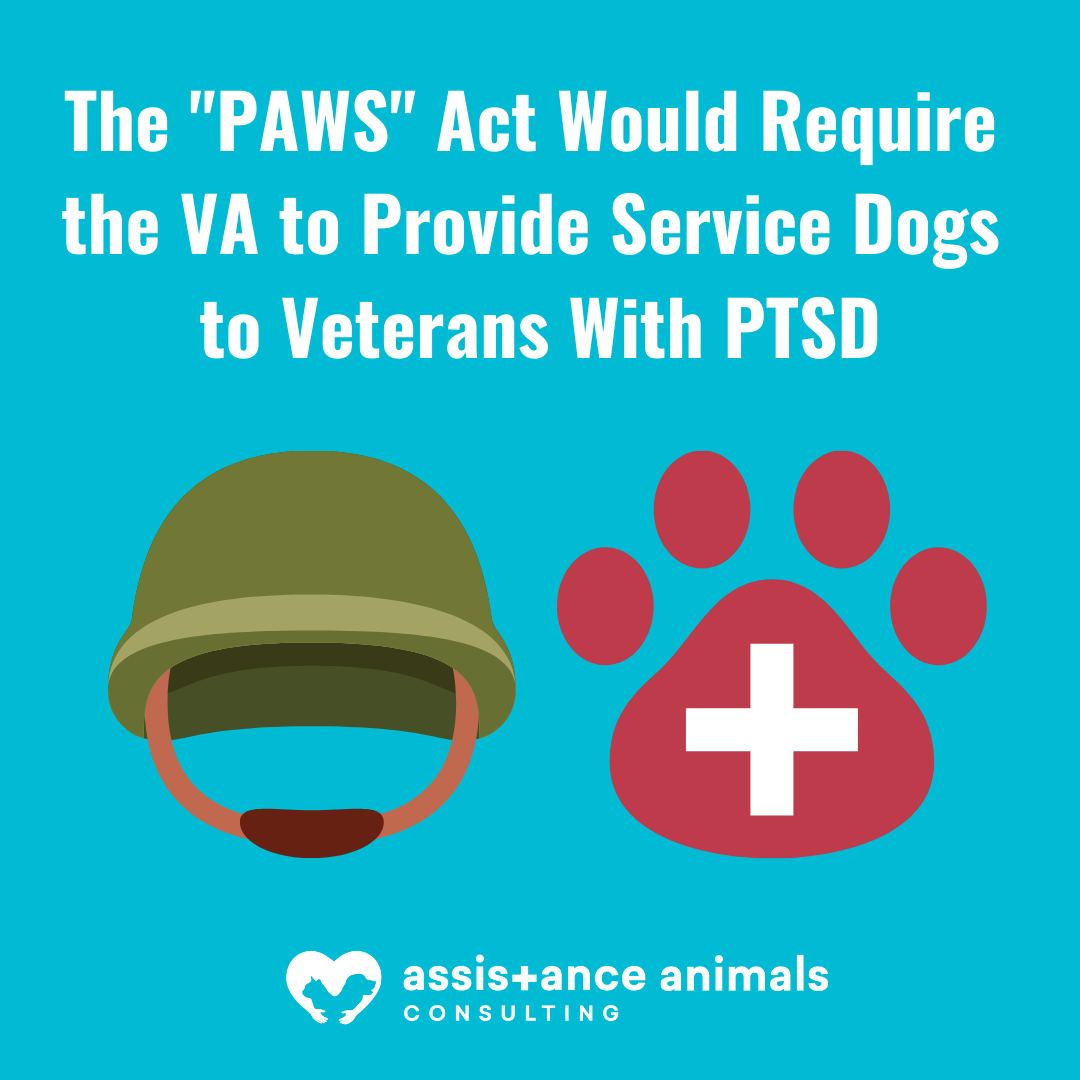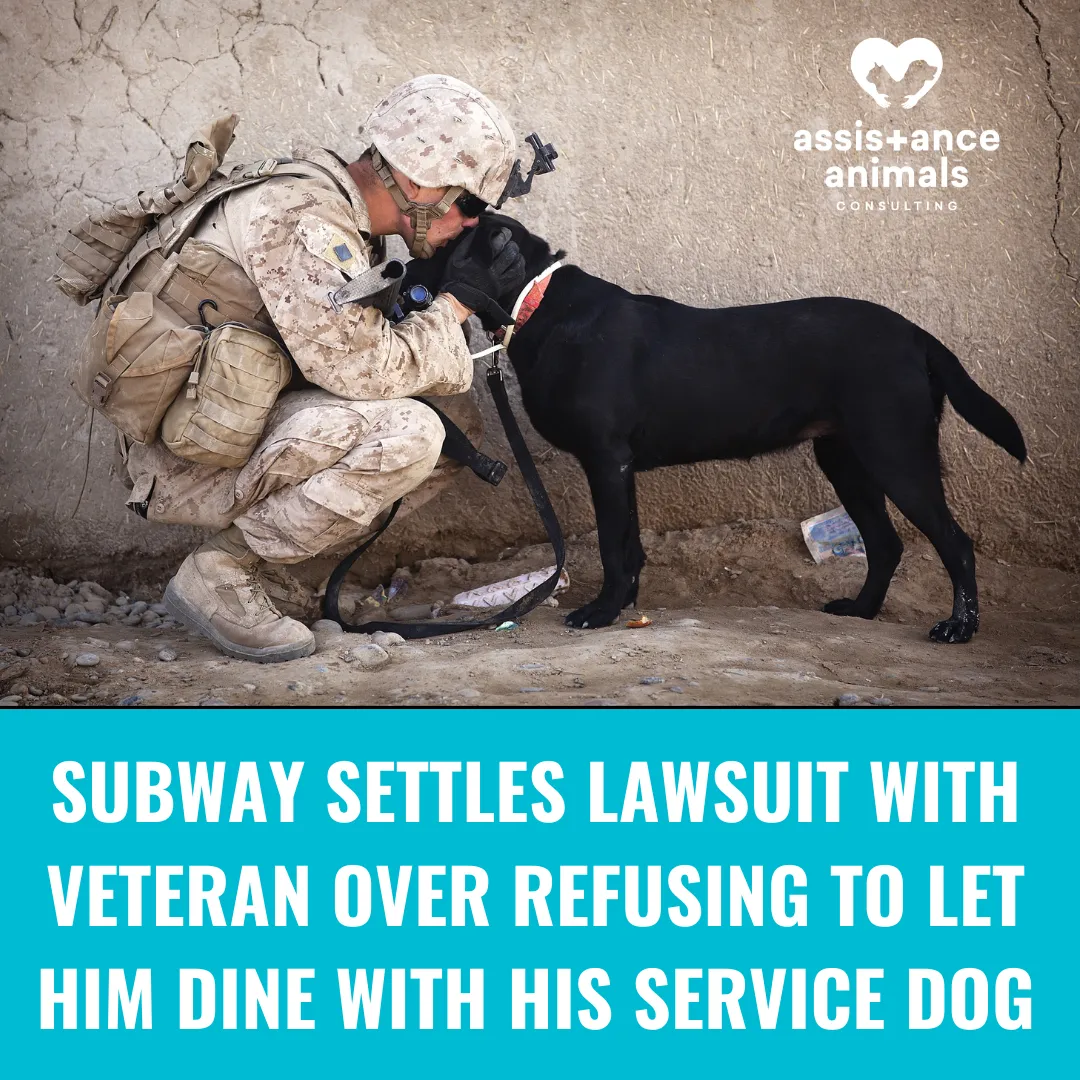PTSD (posttraumatic stress disorder), is a mental health problem that some people develop after experiencing or witnessing a life-threatening event. In honor of U.S. National PTSD Day on June 27th, Assistance Animals Consulting is discussing how our veterinarians collaborate and support individuals using PTSD service dogs.
At Assistance Animals Consulting, we are veterinarians, recognized experts uniquely qualified to serve the community by providing resources for education, behavioral understanding, and guidance regarding working animals.
The veterinarians at Assistance Animals Consulting do not prescribe service dogs. Our veterinarians begin our collaborative process after the prescription for a service dog is given. If a mental health professional has determined their patient can benefit from the use of a support animal like a service dog, the veterinarians at Assistance Animals Consulting will then begin our collaboration process.

